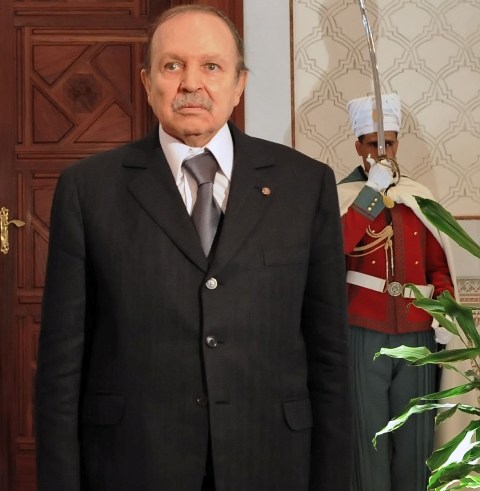Algerian rulers aim for return to established order with election
The vote comes weeks after the security forces stamped out the last demonstrations by a mass protest movement that erupted in 2019, forcing veteran president Abdelaziz Bouteflika from office and prompting official promises of change. Looming behind the political manoeuvring and public unrest is the largely closed, state-run economy.

- Country:
- Algeria
Algeria's president and the generals backing him hope Saturday's parliamentary election will mark an end to two years of upheaval, but in the capital's steep, winding streets few people seemed enthused. While thousands of candidates rallied supporters at official campaign events for an election that moderate Islamist parties hope to win, the low turnout in recent national votes has underscored public skepticism for the process.
"I won't vote because nothing will change. Nothing at all," said Khadidja, a woman in a facemask and pink headscarf speaking near a wall plastered with election posters. The vote comes weeks after the security forces stamped out the last demonstrations by a mass protest movement that erupted in 2019, forcing veteran president Abdelaziz Bouteflika from office and prompting official promises of change.
Looming behind the political maneuvering and public unrest is the largely closed, state-run economy. Foreign currency reserves have fallen by 80% since 2013, as energy revenues declined, pushing state finances towards disaster. Any economic collapse in Algeria, a regional military power, Africa's biggest country, and with a long Mediterranean coastline, could endanger stability beyond its own shores.
Though Bouteflika's replacement Abdelmadjid Tebboune was elected president in 2019 and an amended constitution was approved in a referendum last year, many Algerians believe the security and military establishment still retains real power. The establishment believes replacing the old president, parliament, and constitution, coupled with the jailing of numerous Bouteflika cronies, is the best way to end the biggest crisis in decades, said a former senior official.
"The election is another effort to gain some popular legitimacy with the aim of building a new political map," said Abdelhak Bensadi, a political science professor at Algiers university. Supporters of the leaderless 'Hirak' protest movement point to an increasing security crackdown on dissent and dismiss Saturday's election as a charade. They want a more thorough purge of the ruling elite and the army to quit politics.
They also boycotted the election of Tebboune, which had a turnout officially recorded as only 40%, and last year's referendum that brought only a quarter of voters to the polls. BOYCOTT
"A parliament elected by the people guarantees the country's exit from previous scenarios," election authority head Mohamed Chorfi said this week. To encourage higher engagement, Tebboune has urged young people to compete for parliamentary seats and the government gave $2,255 to each candidate younger than 40 for electioneering costs.
In the aftermath of the Hirak protests, the old established parties that have long dominated Algerian politics may struggle to hold onto voters. With Hirak supporters likely to boycott the vote, it leaves the way clear for other parties. Moderate Islamist groups hope this will let them gain a majority of seats and secure a role in Tebboune's next government.
"I decided to stay and work hard to change the political system," said Zakaria Cherfaoui, a candidate for the Islamist al-Adala party. The new government and parliament will face an immediate series of challenges after years of failing to diversify the economy away from its reliance on falling oil and gas sales.
New laws to encourage investment and reverse the decline in the energy sector have struggled to make an impact as an ever-changing carousel of ministers have moved in and out of office. Bouteflika's efforts to stimulate the private sector only added to the rampant corruption that helped fuel the Hirak protests. Meanwhile, any attempt to put state spending on a more stable trajectory by cutting lavish social benefits could spark a new wave of popular unrest.
(This story has not been edited by Devdiscourse staff and is auto-generated from a syndicated feed.)
ALSO READ
Tailenders Triumph: South Africa's Dramatic Test Victory Over Pakistan
South Africa's Thrilling Victory Books WTC Final Spot
Nail-Biting Finish: Pakistan and South Africa Battle for Test Victory
South Africa Secures Epic Victory in Tense Test Match Finish
Rabada's Batting Heroics Secure Thrilling Victory for South Africa










